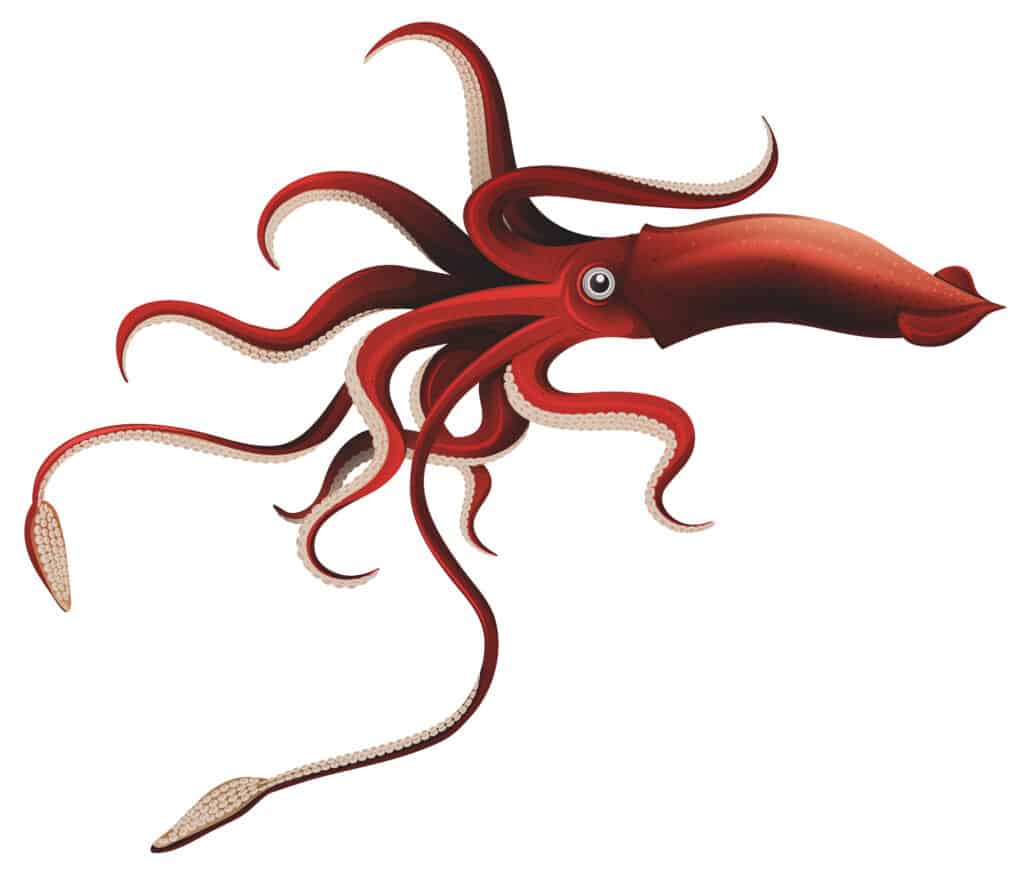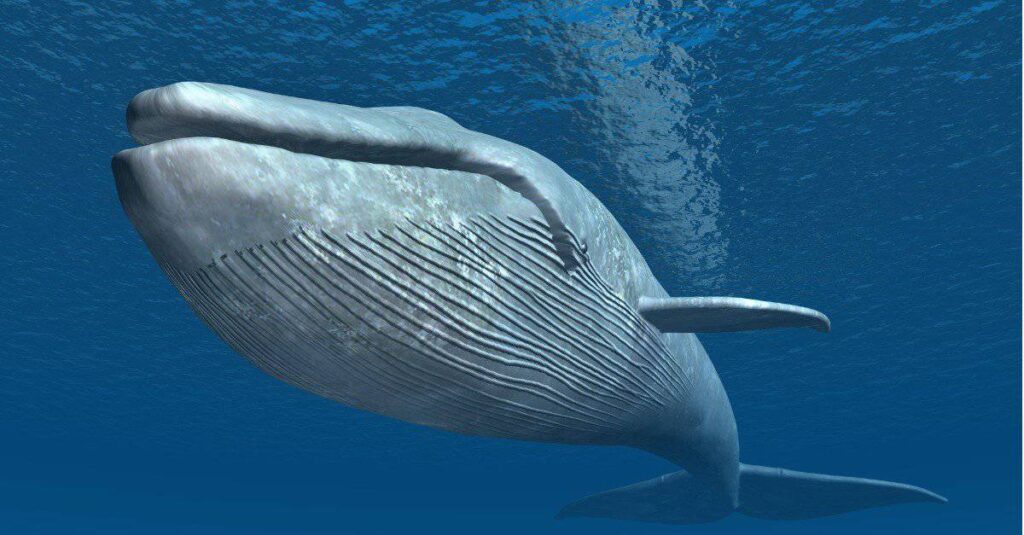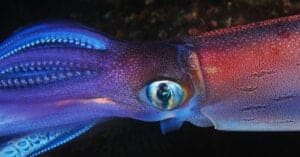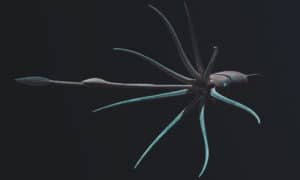The sea is a big place. And it’s home to some truly enormous animals. The giant manta ray, for example, has a wingspan of up to 29 feet. The whale shark, the world’s biggest fish, can grow to be 40 feet long. But the world champion in terms of size is the blue whale, Balaenoptera musculus. This amazing mammal is not just the biggest whale on earth, it’s the biggest animal on earth, full stop.

Sketchy: Because giant squid tend to stay in deep waters, living specimens have rarely been seen.
©iStock.com/blueringmedia
But it’s not just fish and mammal species that are living large in oceanic environments. Invertebrates, too, have some pretty big players. The most impressive is probably the giant squid, Architeuthis spp (it’s not clear if there’s one or more species of this animal). The mysterious cephalopod lives in the ocean depths, peering through the darkness with the biggest eyes in the animal kingdom.
As vast as the ocean is, it’s hard not to be curious about what might happen if these two titans were to meet. In a battle between a giant squid and a blue whale, who would win? And why?
| Giant Squid | Blue Whale | |
| Size | Weight: up to 600 pounds Length: 40-50 feet (body, 7.4 feet, plus arms and tentacles ) | Weight: 286,000 – 330,000 pounds Length: 72-100 ft |
| Speed and Movement | Swims up to 25 mph | Swims at 10-30 mph. |
| Defenses | Huge eyes can detect predators and prey from a distance. | Size (biggest animal on earth). Thick blubber layer. |
| Offensive capabilities | Multiple tentacles with toothed suction cups; hard, sharp beak. | Large tail. |
| Predatory Behavior | Seizes prey with tentacles. | Feeds on tiny crustaceans filtered through its baleen. |
| Habitat | Worldwide ocean; rare in tropical and polar regions. | Migrates through cold and tropical oceans. |
What Are Key Differences Between a Giant Squid and a Blue Whale?

The biggest animal on earth eats very tiny food. A whole lot of very tiny food.
©iStock.com/MR1805
Though they’re both ocean-dwelling predators, blue whales and giant squid are very different animals. Blue whales, like all whales, are vertebrates, meaning they have a backbone and a skeleton. They’re mammals, so they’re warm-blooded and need to breath air. Giant squid are cephalopods, a class of water-breathing invertebrates that includes squid, octopuses, cuttlefish.
Both animals feed on other sea creatures, but their methods are also very different. The giant squid uses its two long tentacles—more than twice its body length—to catch prey from a distance. Sharp-tooth suckers at the ends of the tentacles help the squid to grasp its target. the squid then uses its eight shorter arms to bring the food to its sharp beak, which breaks it up into smaller pieces for feeding. Giant squid eat a variety of deepwater fish and squid, including other giant squid.
Blue whales feed mainly on tiny shrimp-like crustaceans called krill. They capture their food with a method called filter feeding: gulping a huge amount of water, then expelling it through the plate-like layers of baleen that they have in place of teeth. The krill that are left behind get swallowed; a blue whale might eat as much as six tons of krill in a single day.
What Are the Key Factors in a Fight Between a Blue Whale and a Giant Squid?
In all likelihood, the most meaningful consideration in this imagined battle is sheer size. As giant as it is, the adult giant squid is only half the length of a fully-grown blue whale. And most of the squid’s length is due to its tentacles. The giant squid’s 7.4-foot long body is about a tenth the length of a 72-foot blue whale. Given the size difference, it’s hard to imagine that blue whales have anything to worry about in this scenario.
That said, despite its size, a blue whale can be successfully preyed on by much smaller orcas. However, orcas accomplish this by attacking the whale as a group, and carefully coordinating their efforts. As solitary creatures with much smaller brains, giant squid are unlikely to be capable of such tactics.
Who Would Win in a Fight Between a Giant Squid and a Blue Whale?
One way to explore this question is to consider what happens when giant squid tangle with one of their natural predators: the sperm whale. At 49 to 59 feet in length, the sperm whale is the largest toothed predator on Earth. And these whales definitely have a taste for giant calamari.
When a sperm whale decides to munch on a giant squid, evidence suggests the squid is usually on the losing end of the fight. While sperm whales sometimes have circular scars left by a giant squid’s toothed tentacles, the fact that squid beaks are found in sperm whale stomachs points to a victory for the hungry whale. Conversely, no evidence has been found of giant squids feeding on sperm whales. It’s implausible that giant squids would fare any better against the much bigger blue whales.
But there’s one more factor to consider. Unlike sperm whales, blue whales are not built to eat squid. They may be able to pull a giant squid into their mouth via suction, the way a sperm whale does, but then what? It’s possible the squid might be spat right out again. And the squid, for its part, has no reason to tussle with a whale that’s not trying to eat it.
So the most likely outcome in this clash of two titans might be a draw.
With neither finding the other to be edible, and neither able to easily damage the other, let’s imagine these giants of the sea going their separate ways. After all, the ocean’s big enough for the two of them.
The photo featured at the top of this post is © iStock.com/richcarey
Thank you for reading! Have some feedback for us? Contact the AZ Animals editorial team.







